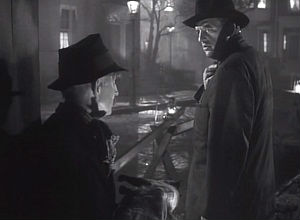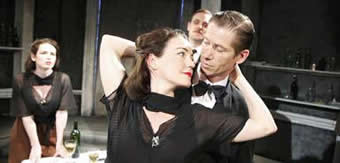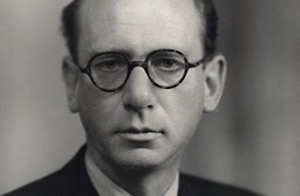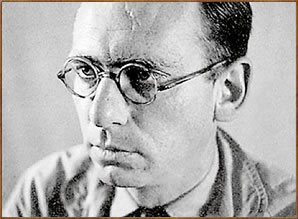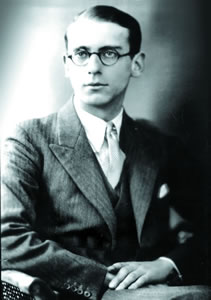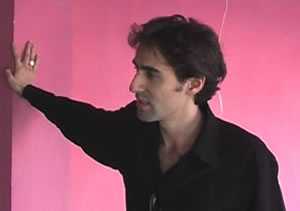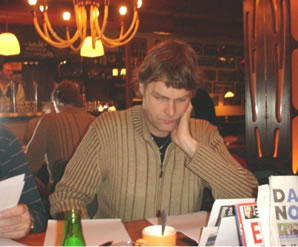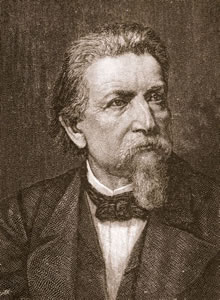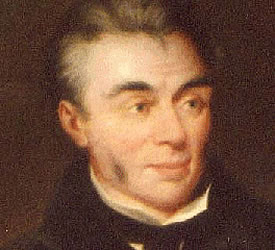De Franse schrijver Hafid Aggoune werd geboren op 17 maart 1973 in Saint-Etienne. Hij studeerde moderne letterkunde en geschiedenis in Lyon en begon al tijdens zijn studie aan zijn eerste roman Les Avenirs. Het boek verscheen in 2004 en hij ontving er de prix de l’Armitière 2004 en de prix Félix Fénéon 2005 voor. In 2008 verscheen Premières heures au paradis, in 2009 Rêve 78.
Uit: Les Avenirs
„Ma vie n’est nulle part, ni devant ni derrière, écrite, présente, en dehors de moi, sous mes yeux usés, entre mes vieilles mains, sur les pages de ce vieux cahier. Je ne saurais dire si c’est moi qui retrouve le passé ou l’inverse. L’écriture résonne en moi. Tous ces mots sont si familiers. Je ne sais plus. C’est mon écriture, ma voix abyssale. Tout remonte. C’était oublié. C’était là. Tout est là, au fond du corps. Le corps notre mémoire. Mon corps écriture. Mon corps lecteur.
Les mots étaient là, autre chose que des mots, une nébuleuse flottant dans le gouffre. Il me manquait les mots d’avant les mots. Maintenant, ils m’assaillent. Ils ont le visage d’un fond de puits, comme soufflés par un autre qui serait moi et dontj’ignore tout, sauf cette voix lisible qui les porte.
(…)
Le monde n’a changé ni hier ni aujourd’ hui, et il ne changera pas demain. Un jour nous sommes un mardi. La nuit viendra et nous ne serons plus un mardi. Nous serons un mercredi, puis un jeudi, un vendredi, jusqu’au retour du mardi. Sans fin, les aiguilles amènent le retour des jours. Le monde se répète mais ce n’est jamais une répétition. Chaque jour devrait porter un nom différent car chaque jour est unique, irremplaçable, infini, et le monde ne change pas. Seuls nos regards se transforment.
Je ne vois pas les feuilles modifier leurs couleurs entre les saisons. Un jour, je les entends craquer sous mes doigts. C’est l’automne, elles sont vidées de leur eau. Elles sèchent et craquent. ce sont des visages végétaux. Elles nous ressemblent et nous leur ressemblons.“
Hafid Aggoune (Saint-Etienne, 17 maart 1973)
De Nederlandse dichter Rense Sinkgraven werd op 17 maart 1965 geboren in het Friese Sint Jacobiparochie en groeide op in het Drentse Smilde. Hij is afgestudeerd filosoof aan de RuG en werkt als organisator bij de Schrijversschool Groningen. Sinkgraven publiceerde onder andere in de bundels Het Hogere Noorden, Dichter bij de Stad, Groningen, de stad in gedichten, War On War (gedichten geen bommen) en in de literaire bladen Mosselvocht, Tzum, Rottend Staal, Passionate, Noachs Kat, De Hobbyrocker en Krakatau. Hij treedt regelmatig op en maakt deel uit van de Dichtclub te Groningen.
De paraplu van K. Schippers
Zwart. Handvat bekrast.
Waterwerende stof op twee punten
vastgehecht met zwart draad aan balein.
Punt licht gebogen.
Twee baleinen geknakt bij bevestigingspunt.
Ingeklapt: een elegant vrouwtje
met afstaande oren. Of: een tanig vrouwtje
met een wipneus en een buikje.
Ook: een existentiële polonaiseparaplu
diepzinnig dansend op één been.
Uitgeklapt: een mislukte parachute.
Een opgewonden standje dat
klappen kreeg. Gefnuikte vleermuisvleugels.
Glimmende ster van vermoeid metaal.
Ook: een bevallige vrouw een beetje loensend
in een regenpak dat haar fantastisch staat.
Als dit niet zijn paraplu was
zou ik niet zó kijken.
Rense Sinkgraven (Sint Jacobiparochie, 17 maart 1965)
De Amerikaanse schrijver William Ford Gibson werd geboren in Conway (South Carolina) op 17 maart 1948. Zie ook mijn blog van 17 maart 2008.
Uit: Pattern Recognition
„Five hours’ New York jet lag and Cayce Pollard wakes in Camden Town to the dire and ever-circling wolves of disrupted circadian rhythm.
It is that flat and spectral non-hour, awash in limbic tides, brainstem stirring fitfully, flashing inappropriate reptilian demands for sex, food, sedation, all of the above, and none really an option now.
Not even food, as Damien’s new kitchen is as devoid of edible content as its designers’ display windows in Camden High Street. Very handsome, the upper cabinets faced in canary-yellow laminate, the lower with lacquered, unstained apple-ply. Very clean and almost entirely empty, save for a carton containing two dry pucks of Weetabix and some loose packets of herbal tea. Nothing at all in the German fridge, so new that its interior smells only of cold and long-chain monomers.
She knows, now, absolutely, hearing the white noise that is London, that Damien’s theory of jet lag is correct: that her mortal soul is leagues behind her, being reeled in on some ghostly umbilical down the vanished wake of the plane that brought her here, hundreds of thousands of feet above the Atlantic. Souls can’t move that quickly, and are left behind, and must be awaited, upon arrival, like lost luggage.
She wonders if this gets gradually worse with age: the nameless hour deeper, more null, its affect at once stranger and less interesting?“
William Gibson (Conway, 17 maart 1948)
De Duitse schrijver Siegfried Lenz werd op 17 maart 1926 in Lyck, in de landstreek Masuren in Oostpruisen geboren. Zie ook mijn blog van 17 maart 2007 en ook mijn blog van 17 maart 2008.
Uit: Schweigeminute
“Wir setzen uns mit Tränen nieder”, sang unser Schülerchor zu Beginn der Gedenkstunde, dann ging Herr Block, unser Direktor, zum bekränzten Podium. Er ging langsam, warf kaum einen Blick in die vollbesetzte Aula; vor Stellas Photo, das auf einem hölzernen Gestell vor dem Podium stand, verhielt er, straffte sich, oder schien sich zu straffen, und verbeugte sich tief. Wie lange er in dieser Stellung verharrte, vor deinem Photo,Stella,über das ein geripptes schwarzes Band schräg hinlief, ein Trauerband, ein Gedenkband; während er sich verbeugte, suchte ich dein Gesicht, auf dem das gleiche nachsichtige Lächeln lag, das wir, die ältesten Schüler, aus deiner Englischstunde kannten. Dein kurzes schwarzes Haar, das ich gestreichelt, deine hellen Augen, die ich geküßt habe auf dem Strand der Vogelinsel: Ich mußte daran denken, und ich dachte daran, wie du mich ermuntert hast, dein Alter zu erraten. Herr Block sprach zu deinem Photo hinab, er nannte dich liebe, verehrte Stella Petersen, er erwähnte, daß du fünf Jahre zum Lehrerkollegium des Lessing-Gymnasiums gehörtest, von den Kollegen geschätzt, bei den Schülern beliebt. Herr Block vergaß auch nicht, deine verdienstvolle Tätigkeit in der Schulbuchkommission zu erwähnen, und schließlich fiel ihm ein, daß du ein allzeit fröhlicher Mensch gewesen warst: “Wer ihre Schulausflüge mitmachte, schwärmte noch lange von ihren Einfällen, von der Stimmung, die alle Schüler beherrschte, dies Gemeinschaftsgefühl, Lessingianer zu sein; das hat sie gestiftet, dies Gemeinschaftsgefühl.”

Siegfried Lenz (Lyck, 17 maart 1926)
De Roemeense schrijver en avantgardist Urmuz (eig. Demetru Dem. Demetrescu-Buzău) werd geboren op 17 maart 1883 in Curtea de Argeş. Zie ook mijn blog van 17 maart 2007 en ook mijn blog van 17 maart 2008.
Uit: Fuchsiada (Vertaald door Julian Semilian and Sanda Agalidi)
„Fuchs was not engendered by his mother, not quite… In the beginning, when he came into being, he was not actually seen, but only heard, because Fuchs, when he was given birth opted to come out through one of his grandmother’s ears, his mother being possessed not at all of a musical ear.
Following that, Fuchs went directly to the Conservatory… There he took the form of a perfect chord and, after spending at first, out of artistic modesty, three years hidden at the bottom of a piano, without anyone’s knowledge, came up to the surface and in a few minutes concluded the course in harmony and counterpoint and wound up his piano studies… Then he stepped down, but counter to all his expectations, discovered regretfully that two of the sounds from which he was composed, altered by the passage of time, had decayed: one, into a pair of mustaches with spectacles behind the ears, while the other, into an umbrella – which together with a G-sharp which was still left to him, endowed Fuchs with his precise, allegoric, and definitive form…
Later, during puberty, it is told, Fuchs developed a kind of genital organs which were solely a young and exuberant vine leaf, as he was by nature uncommonly bashful, and would not permit, for the very life of him, anything more than a leaf or a flower…
This leaf also serves him – it is so believed – as daily nutriment. The artist absorbs it each evening before bedtime, then crawls quietly at the bottom of his umbrella and after he locks himself in securely with two musical keys, falls asleep carried off by musical staves and swayed by wings of angelic harmonies, and seized by dreams hearkened till the following morn, when – bashful as his wont – will not surface from his umbrella until a new leaf has grown to replace the old.“
Urmuz (17 maart 1883 – 23 novemmber 1923)
Portret door Triana
De Duitse schrijver, essayist, vertaler, uitgever, historicus, organist en muziekwetenschapper Hans Wollschläger werd geboren op 17 maart 1935 in Minden. Zie ook mijn blog van 17 maart 2007 en ook mijn blog van 17 maart 2008.
Uit: Anderrede vom Weltgebäude herab oder Kleine Mauerschau des Alterns
„Über die ganz ernsten Dinge läßt sich eigentlich bloß ernst nicht mehr reden, schon gar nicht über das komplizierte und unabsehbar implizierende Ernsteste Ding überhaupt, den Tod. Sein Dasein allein läßt einem derart die Luft wegbleiben, daß die Wörter nicht mehr von der Zunge kommen: eine Lebe-Welt, in der Alles, aber auch Alles von ihm abgeschlossen wird, und zumeist auch noch auf die haarsträubendste Weise, ist das unglaubliche Absurdum selber. Man kann imgrunde gar nicht davonreden und müßte, wollte man’s wenigstens versuchen, einen eigenen Zynismus dafür ersinnen: eine Satire-Form, die das Große Gelächter wie ein Stück Eis über den Rücken schöbe; Karl Kraus hätte sie schreiben können. Unser tod-ernstes Mienenspiel ist zu sehr kompromittiert durch die Alfanzereien,die wir täglich damit begleiten, als daß es für das wüste Un-Ding noch ausreichte, von dem wir’s haben.Spätestens seit der Tod nicht als Person mehr vorstellbar ist, mit der man Bergman’sche (oder sogarnoch bessere) Dialoge führen könnte, ist auch die Vorstellung dahin, er wäre als Nebenwesen überlistbar, zu besiegen, gar selber sterblich; die Religionen, die ihn früher so wohlgemut nach seinem Stachel gefragt haben, werden in Kürze nur noch eine liebenswürdige Erinnerung sein. Selbst Bazon Brock, der seinerzeit, mit meinem ungeteilten Beifall, eine Liga zu seiner Abschaffung gegründet hat,war ohne Fortune, wenn man ihm nicht als Teilerfolg anrechnen will, daß er selber trotz seiner Werke noch da ist. Die Situation ist tatsächlich absurd, em
pörend, unerhört: das Leben als nun wirklich prädestinierter Kreuzweg aufs Grab zu stellt eine derartige Zumutung des Großen Ganzen an uns Kleine Teilchen dar, daß mir schon in der Wiege die mir dort beigebrachte, ebenso stark geglaubte wie schwach beglaubigte Vorstellung von einem allmächtigen und allgütigen Schöpfer, egal ob Gott, Allah oder das Tetragrammaton geheißen, schier zum Kopfschütteln war.“
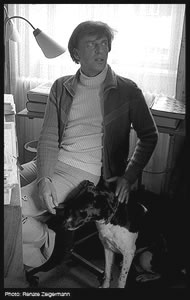
Hans Wollschläger (17 maart 1935 – 19 mei 2007)
De Engelse dichteres en schrijfster Jean Ingelow werd geboren op 17 maart 1820 in Boston, Lincolnshire. Zie ook mijn blog van 17 maart 2007.
One morning, oh! So early
One morning, oh! so early, my beloved, my beloved,
All the birds were singing blithely, as if never they would cease;
‘Twas a thrush sang in my garden, “Hear the story, hear the story!”
And the lark sang, “Give us glory!”
And the dove said, “Give us peace!”
Then I hearkened, oh! so early, my beloved, my beloved,
To that murmur from the woodland of the dove, my dear, the dove;
When the nightingale came after, “Give us fame to sweeten duty!”
When the wren sang, “Give us beauty!”
She made answer, “Give us love!”
Sweet is spring, and sweet the morning, my beloved, my beloved;
Now for us doth spring, doth morning, wait upon the year’s increase,
And my prayer goes up, “Oh, give us, crowned in youth with marriage glory,
Give for all our life’s dear story,
Give us love, and give us peace!”
Jean Ingelow (17 maart 1820 – 20 juli 1897)
De Engelse schrijver Patrick Hamilton werd geboren op 17 maart 1904 in Hassocks, Sussex. Zie ook mijn blog van 17 maart 2007.
Uit: The Midnight Bell
“The Saloon Bar was narrow and about thirty feet in length. On your right was the bar itself, in all its bottly glitter, and on your left was a row of tables set against a comfortable and continuous leather seat which went the whole length of the bar. At the far end the Saloon Bar opened out into the Saloon Lounge. This was a large, square room filled with a dozen or so round, copper-covered tables… the whole atmosphere was spotless, tidy, bright, and a little chilly. This was no scene for the brawler, but rather for the principled and restrained drinker, with his wife. In here and in the Saloon Bar, The Midnight Bell did most of its business—the two other bars (the Public and the Private) being dreary, seatless bareboarded structures wherein drunkenness was dispensed in coarser tumblers and at a cheaper rate to a mostly collarless and frankly downtrodden stratum of society. The Public Bar could nevertheless be glimpsed by a customer in the Saloon Bar, and as the evening wore on it provided the latter with an acoustic background of deep mumbling and excited talk without which, indeed, the nightly drama of the Saloon Bar would have been rather like a cinematograph drama without music…”

Patrick Hamilton (17 maart 1904 – 23 september 1962)
De Duitse schrijver en journalist Karl Gutzkow werd geboren op 17 maart 1811 in Berlijn. Na de romans “Briefe eines Narren” en “Maha Guru.Geschichte eines Gottes” publiceerde hij in 1835 de roman “Wally, die Zweiflerin”, die wegens zijn „immorele“ inhoud een schandaal veroorzaakte. Gutzkow moest er 2,5 maanden voor de cel in en kreeg in Pruisen een schrijfverbod. Na zijn vrijlating werd hij de uitgever van de Frankfurter Börsenzeitung en de Frankfurter Telegraf. Vanaf 1837 woonde hij in Hamburg. Zijn kunstenaarsdrama “Richard Savage, Sohn einer Mutter” uit 1839 stond binnen een half jaar op het speelplan van achtien Duitse theaters.
Uit: Berlin — Panorama einer Weltstadt
„Ob man bei Stehely einen Begriff von der Verberlinerung der Literatur bekommen kann–ganz gewiss, oder man muesste sich taeuschen in dieser stummen Bewegungssprache, die einen Haufen von Zeitschriften mit wilder Begier und neidischem Blick zusammentraegt, ihn mit der Linken sichert und mit der Rechten eine nach der andern vor die starren, teilnahmslosen Gesichtszuege haelt. Die Eisenstange und das Schloss des Journals scheint mit schwerer Gewalt auch seine Zunge zu fesseln–wer wuerde hier seinen Nachbar auf eine interessante Notiz aufmerksam machen? Ein feindliches
Heer koennte eine Meile von Berlin entfernt sein, kein Mensch wuerde die Geschichte vortragen, man wuerde auf den Druck
warten und auch dann noch ein Exemplar durch aller Haende wandern lassen–fast in der Weise, wie in Stralow die honetten Leute vor jeder lebhafteren Gruppe vorbeigehen mit dem troestenden Zuruf, man wuerd’ es ja morgen gedruckt lesen“
Karl Gutzkow (17 maart 1811 – 16 december 1878)
De Engelse dichter Ebenezer Elliott werd geboren op 17 maart 1781 in Masborough, Yorkshire. Toen hij zestien was ging hij werken in de ijzerwarenwinkel van zijn vader. Tegelijkertijd ging hij door met zijn zelfstudie literatuur en botanica. Toen hij veertig was moest hij na een bankroet nog eens helemaal opnieuw beginnen. Ditmaal was hij wel succesvol. De onderwerpen van zijn gedichten werden nu politieker. Met de Corn Law Rhymes had hij veel succes.
Retrospection
World of my boyhood! art thou what thou wast?
Seen through the melancholy mist of years,
Thy woods a pale diminish’d shadow cast
O’er thoughts grown grey, and feelings dimm’d with tears.
Our spirits, biggen’d by their griefs and fears,
Sadden and dwindle, with their backward view,
All they behold. Chang’d world! thy face appears
Poor as the toy that pleas’d when life was new;
And mournful as th’inscription, trite and true,
That lingers on our little sister’s grave.
Roch Abbey! Canklow! Aldwark! if I crave,
Now, a boy’s joy, from some lone flower’s deep blue,
Will your loved flowers assume a pensive hue?
Or smile as once they smiled, still growing where they grew?
Ebenezer Elliott (17 maart 1781 – 1 december 1849)
Zie voor onderstaande schrijver ook mijn blog van 17 maart 2007.
De Amerikaanse toneelschrijver Paul Green werd geboren op 17 maart 1894 in Lillington, North Carolina.
